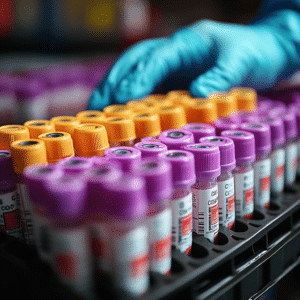Addiction can cast a long shadow over family dynamics. The pain, misunderstanding, and grief often cycle between loved ones, leaving parents feeling isolated and helpless. Narcotics Anonymous (NA) meetings stand as a beacon of hope—offering solace and strategies not just for those struggling with addiction, but also for their families. These gatherings serve as essential checkpoints on the recovery journey, where understanding and empathy thrive.
Understanding the many forms of NA meetings can empower parents. They can build connections, gather insights, and foster resilience. By participating in these communities, families can navigate their path toward healing, transforming pain into purpose. This article dives into the various types of NA meetings, emphasizing their vital role in enriching family dynamics amid addiction.

7 Types of NA Meetings to Support Recovery
Open NA meetings welcome everyone, allowing family members to observe and better understand the recovery process. Here, parents can hear shared stories, showing them that their children’s struggles are universal. Conversely, closed meetings are exclusive to those identifying as addicts. This format ensures confidentiality, fostering an environment where participants feel safe to express themselves.
The pandemic revolutionized support systems, giving virtual NA meetings a solid foothold. Platforms like Zoom eliminate geographical barriers, making it easier for families to access support regardless of location. This digital shift has led to increased participation, especially among those hesitant about face-to-face interaction.
Adult Children of Alcoholics (ACOA) meetings provide a specialized support framework addressing the unique challenges faced by those raised in alcohol-dependent households. This connection is invaluable for parents seeking a deeper understanding of their child’s behavior and struggles. While not directly affiliated with NA, these meetings allow for holistic healing, assisting families to process their past experiences.
At NA speaker meetings, individuals in recovery share their personal stories. These testimonials often resonate deeply with families, offering insights into the struggles faced and victories achieved. Engaging with these narratives cultivates empathy, revealing the intricate dance of addiction and recovery that affects everyone involved.
NA step meetings center around the 12-step recovery process. These gatherings guide participants through crucial steps, highlighting the significance of each in the journey to reclaiming life from addiction. Family members participating in these discussions can gain valuable perspectives, facilitating stronger support systems for their loved ones.
Online platforms, like Sober Recovery or Family Support Network, provide additional avenues for families to engage in discussions about addiction. These informal conversations can beautifully complement traditional NA meetings, allowing families to connect in real time. Here, they can share strategies, experiences, and support.
While Narcotics Anonymous focuses on narcotics, Alcoholics Anonymous (AA) meetings also offer benefits for families. These meetings address broader addiction issues, serving families dealing with both alcohol and drug addictions. AA meetings, especially those conducted online or via Zoom, present additional layers of understanding, reinforcing the importance of community support.

Bridging the Gap: The Role of Support Systems
Combining resources from NA, AA, and ACOA meetings allows families to address the myriad of emotions surrounding addiction. Empathetic parental involvement can significantly influence recovery outcomes by creating nurturing environments conducive to healing. Support groups tailored for families add another layer of hope, reinforcing the idea that recovery is a shared journey.
The experiences shared during these meetings cultivate sustainable support networks among families. This collective approach can lead to profound emotional recovery. By destigmatizing addiction and emphasizing community, families can navigate their experiences with compassion and understanding.
In addition, resources like Mothers Against Addiction provide crucial strategies for coping with the aftermath of addiction, from understanding manic depressive episodes, to acknowledging depressive disorder signs. These insights spark conversations within families, encouraging collective healing.
Making the Decision to Attend an NA Meeting
Deciding to attend an NA meeting—whether online or in-person—can feel overwhelming. It’s essential for families to reflect on what feels most comfortable. Think about the type of meeting that resonates: do you prefer an open discussion, or would you rather listen and absorb? Choosing the right setting, timing, and level of engagement can help ease anxiety and encourage participation.
Clarifying personal goals and expectations paves the way for a positive experience. Knowing what one hopes to achieve—support, understanding, or perhaps sharing one’s story—can empower individuals throughout their journey. This process not only aids in recovery but fosters a deeper connection among family members.
A Pathway to Hope
As families travel the challenging road of addiction, exploring a variety of supportive resources—like NA meetings, ACOA discussions, and easily accessible online platforms—fuels resilience and reinforces hope. Healing from addiction’s trauma is an impactful journey that reshapes lives, evolving family dynamics for the better.
Engagement in these supportive spaces cultivates empathy and understanding. Families witness real change unfold before their eyes, creating brighter futures filled with hope, healing, and recovery. Each shared experience during meetings is a reminder that no one is alone; it’s a testament to resilience and the possibility of healing.
For parents navigating this journey, Mother Day celebrations become synonymous with hope—not just for themselves but for their children too. By actively participating in NA and ACOA meetings, families take firm steps toward their own recovery story, reminding themselves that healing is possible and help is just around the corner.
When addiction strikes, the road can feel long and winding. Yet, with every AA meeting attended, every story shared, and each moment of connection, families can find strength and solace. By participating in communities centered around recovery, families build bonds that endure, guiding them toward healing and brighter horizons. They can truly believe that there’s light at the end of the tunnel, and together, they can shine that light for others in their struggle.
Through this journey, all families have the chance to reclaim their narrative, proving that love, support, and community can conquer the shadows cast by addiction.
NA Meeting: A Journey to Recovery and Hope for Families
Understanding the NA Meeting Experience
Attending an NA meeting can feel like embarking on a roller coaster ride; there’s a mix of excitement, fear, and relief all rolled into one. For families, it’s crucial to know that these meetings provide more than just a safe space for recovering addicts. They offer a chance for families to come together, share experiences, and find strength in unity. Interestingly, the insights gained at these gatherings can resonate just as deeply as they do in a gripping film like Onelife, which emphasizes the transformative power of personal stories.
Speaking of stories, those who attend NA meetings often uncover some enlightening truths about managing addiction and improving mental health. For example, did you know that over 30% of individuals battling addiction also suffer from depression? Understanding What are Signs Of depression can help families support their loved ones more effectively. With this knowledge, it’s easier to tackle the patterns that can lead to setbacks. This is essential because addiction is often intertwined with mental health issues, which can feel akin to traversing Hell or High Water in a quest for clarity and hope.
Finding Community and Support
One of the most rewarding aspects of participating in an NA meeting is the sense of community. These gatherings illustrate that family dynamics can profoundly impact recovery. For instance, just like the narrative in All Time Low Hits reminds us of real struggles, the stories shared in NA meetings reflect shared journeys of hope and resilience. Families often find themselves united, echoing the sentiment that recovery is a road best traveled together.
Moreover, attendees can find various forms of support, including discussions about resources, tools, and even merchandise like Marsupial Gear designed for comfortably carrying essentials. The diversity of experiences shared at NA meetings fosters an environment where everyone feels welcome, signaling that help is always at hand. This simple act of gathering can help families become more proactive in their loved ones’ recovery process as they identify signs and symptoms of addiction and mental health challenges.
By investing time in understanding this intricate process of recovery through the lens of NA meetings, families can transform their experiences, navigating the tough times with renewed purpose and support. After all, every little effort counts—a little like those closely contested matches, such as Fulham Fc Vs Norwich city, where the spirit of teamwork makes all the difference. Each person’s journey at an NA meeting may vary, but the underlying theme is the same: hope and healing are possible when we come together.





























